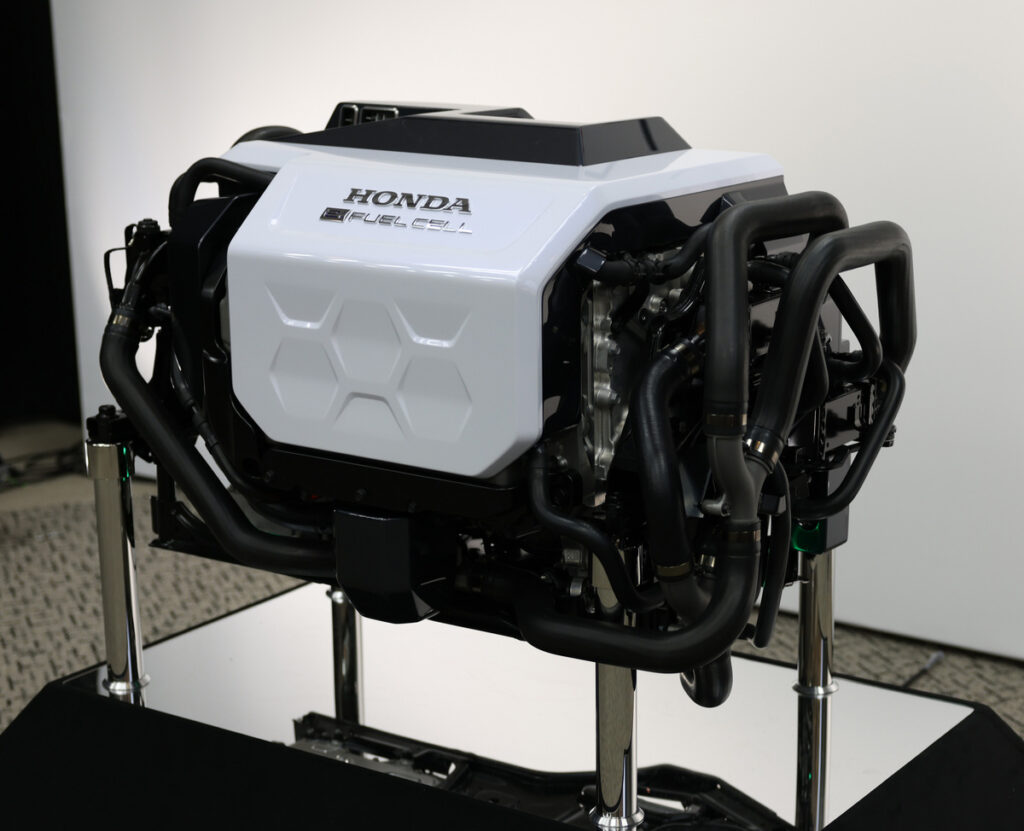The Honda Civic automaker is not only expanding its electric fleet, but it’s also set on increasing the use of hydrogen energy. Hydrogen fuel cells are a viable clean energy solution, producing electricity without carbon dioxide emissions through a chemical reaction between oxygen and hydrogen across an electrochemical cell, much like a battery.
Next-Generation Fuel Cell System
Honda and General Motors have been co-developing a next-level hydrogen energy carrier since 2013, with expectations to double its durability and reduce the cost by one-third. This next-generation fuel cell system leverages both automakers’ combined knowledge, know-how, and economies of scale, making it a more cost-effective solution. The Japanese automaker plans to expand this energy system to power its fleet (FCEVs/Fuel Cell Electric vehicles) and commercial automobiles.
Hydrogen’s Unique Characteristics
Hydrogen is a high-density energy carrier that can store and transport energy quickly, making it an effective power source for commercial and large-size mobility products. Several fuel cell systems can also be connected in parallel for higher energy output.
Expanding Beyond Cars
Honda plans to start selling its hydrogen fuel cell systems co-developed with GM for automobiles in the mid-2020s, with a plan to gradually increase production to 60,000 units by 2030. The automaker also will launch an FCEV model in North America and Japan in 2024, based on its Honda CR-V model, with a plug-in function and long-distance travel capabilities. Additionally, Honda will begin demonstration testing of a fuel-cell-powered, heavy-duty truck in collaboration with Isuzu Motors Limited before the end of 2024.
Hybrid Capabilities
When the Honda CR-V-based hydrogen vehicle arrives in 2024, it will have a few changes from the original announcement. It may not have the name “CR-V FCEV” and will also have a lithium-ion battery pack onboard that can be plugged in and charged. This hybrid capability addresses one of the biggest hurdles of hydrogen vehicles, which is the lack of fueling infrastructure. Honda also is addressing the issues experienced with their previous hybrid, the old Clarity Plug-in, as well as working on improving and expanding infrastructure.
Conclusion
Honda is leading the way in the future of hydrogen power, co-developing a next-generation fuel cell system with General Motors and expanding its use in commercial trucks, construction machinery, and stationary power plants. The automaker also is introducing a new CR-V-based hydrogen vehicle with a plug-in function and long-distance travel capabilities, addressing the lack of fueling infrastructure. Get ready for a future with hydrogen-powered cars!
Sources:
AutoEvolution: Honda and GM to Jointly Start Producing Next-Generation Hydrogen Fuel Cell Systems
TFLCar: Honda’s Hydrogen-Powered CR-V Coming in 2024 Won’t Be Exactly What We Expected
Car and Driver: Hydrogen-Powered Honda CR-V to Be Built in the U.S. Starting in 2024
